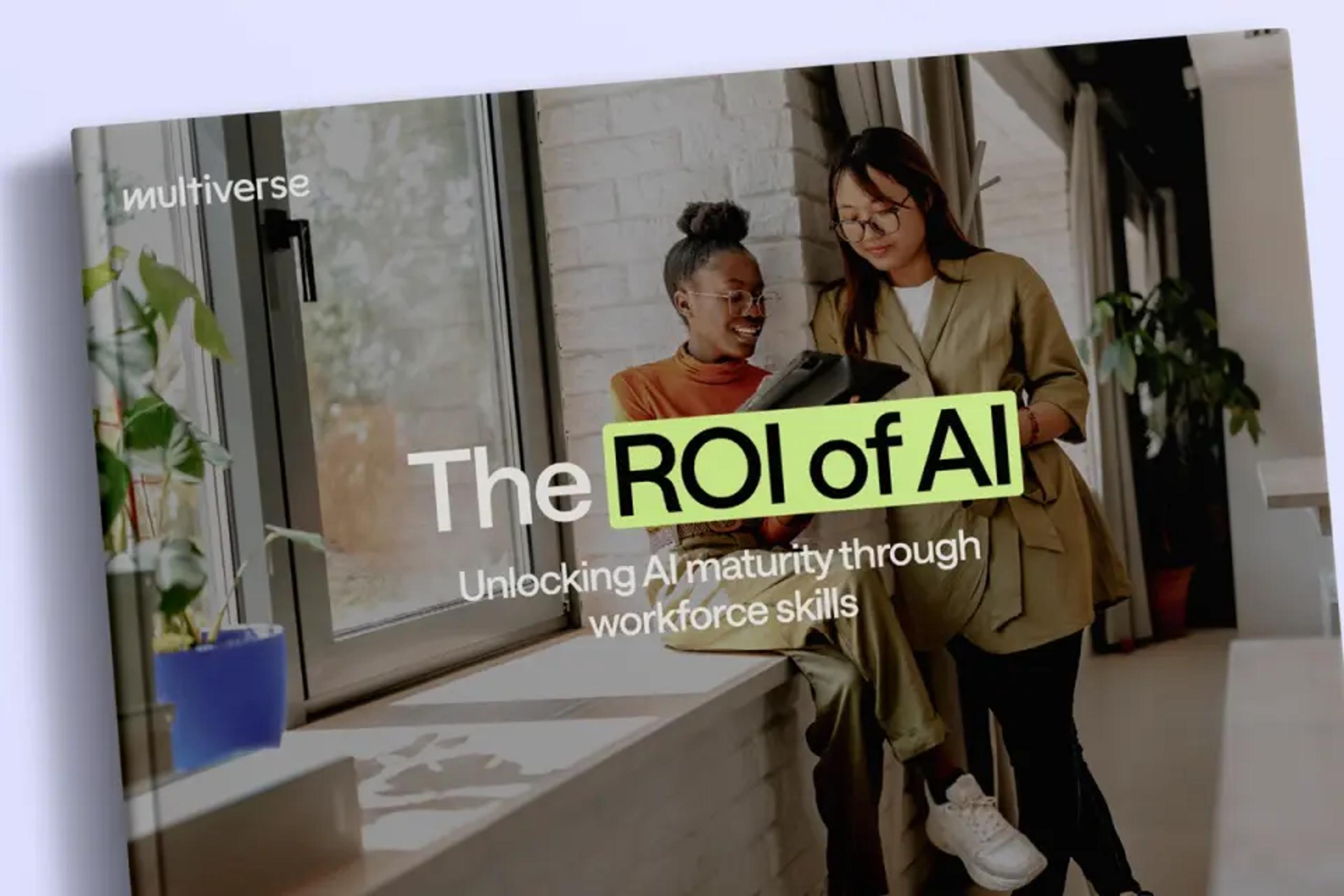In 2025, artificial intelligence has evolved from innovative to essential in financial services.
But while financial institutions are making significant investments in AI technology, many are still developing the workforce capabilities needed to maximise its potential. This presents a timely opportunity for organisations to gain competitive advantage through strategic upskilling.
Our recent research reveals an industry at an inflection point: enthusiastically adopting new technology while simultaneously working to develop the human skills that drive AI success.
"The future of financial services isn't written by algorithms, but by the people who understand how to make those algorithms work for humanity." Anna Wang, Head of AI, AI Advisory Board Member - Multiverse
Based on our comprehensive survey of senior leaders in UK financial institutions,* here are the critical insights defining the state of AI in financial services today:
AI adoption surges, while results lag behind
67% of financial organisations are using AI for process automation, yet only 37% report transformative business results.
Financial institutions are enthusiastically embracing AI across multiple functions:
- 67% for process automation and operational efficiency
- 64% for customer service enhancement
- 57% for strengthening cybersecurity
- 52% for risk management and fraud detection
But despite widespread implementation, the majority (47%) experience only moderate benefits, while 9% admit they aren't measuring AI's impact at all.
The workforce readiness gap
Only 46% of financial institutions are heavily investing in AI upskilling, while 11% have no formal AI training initiatives whatsoever.
Organisations face critical skills gaps in:
- Building AI features (40%)
- Identifying AI use cases (37%)
- Implementing AI projects (33%)
- Risk management (32%)
- Ethical AI practices (30%)
The competitive landscape: An industry of explorers
Only 37% of financial institutions rate their AI maturity ahead of competitors.
The research reveals most organisations remain in early maturity stages:
- 52% classify themselves as "AI Explorers"
- 55% view their AI maturity as comparable to peers
This relatively level playing field creates a significant opportunity for ambitious organisations to gain competitive advantage through strategic skills development.
The future of AI in financial services
Our research shows financial leaders expect AI to transform:
- Cybersecurity (64%)
- Customer service & engagement (55%)
- Regulatory compliance & reporting (48%)
- Process automation & operational efficiency (57%)
Yet this transformation depends entirely on workforce readiness. While 36% of leaders believe AI will transform their roles and create new opportunities, 12% fear their roles may become redundant without proper adaptation.
"The biggest risk is being left behind and seen as uncompetitive because the organisation cannot deliver the service levels that others will have developed." Senior Financial Services Leader
The path forward
Organisations that successfully bridge the AI skills gap will lead the industry through:
- Enhanced cybersecurity capabilities
- Hyper-personalised customer experiences
- Automated compliance through regulatory technology
- Operational efficiencies with AI co-pilots
- Strategic decision-making powered by predictive insights
But this future is only possible with strategic investment in people alongside technology.
A clear direction for AI's future in financial services
Download our full guide for a comprehensive analysis of AI in financial services and a detailed roadmap for workforce development.
Methodology
*The survey, conducted by Radish on behalf of Multiverse between February and March 2025, targeted 157 leaders within financial services organisations. An online survey was used, with all respondents based in the UK. Phone interviews with leaders within the financial services sector were also conducted.







